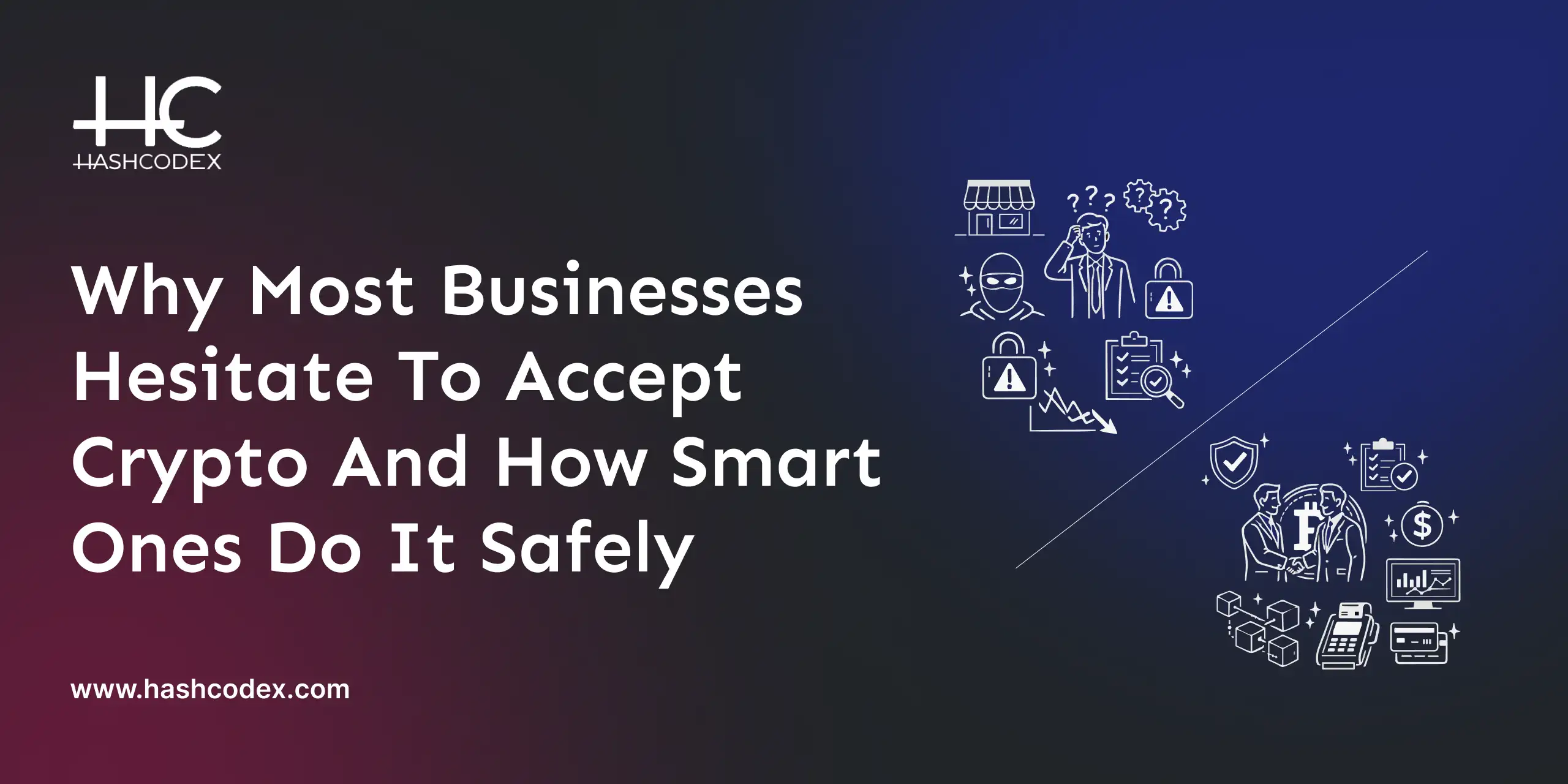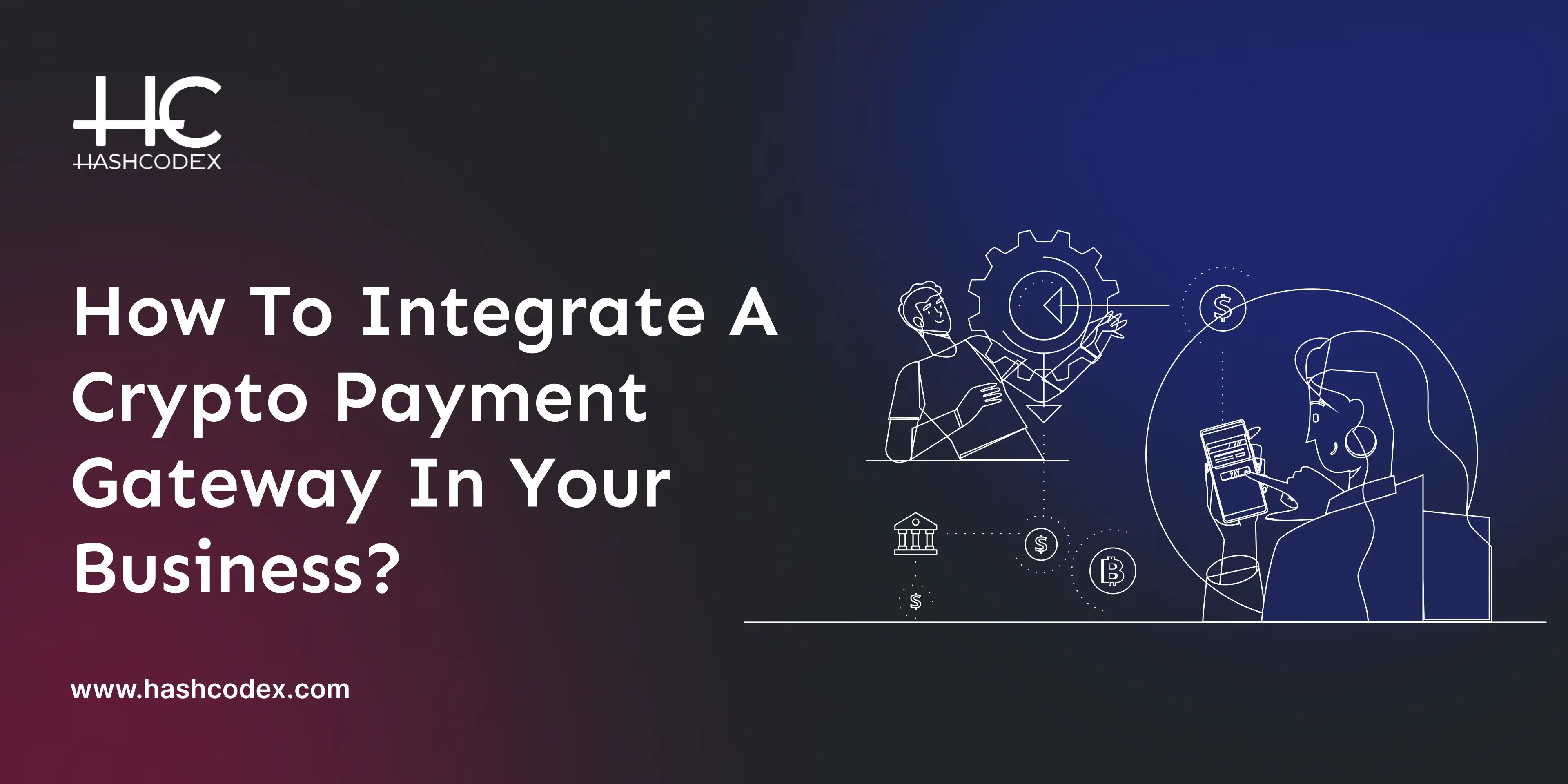Are You Confused?
About crypto payment gateways???
Well, accepting Bitcoin, Ethereum, or stablecoins in your online store sounds great, but it also raises a few big questions.
How do you keep payments secure? What about regulations? And how do you handle the ups and downs of crypto prices? That’s where a crypto payment gateway comes in.
A crypto payment gateway makes it easy for businesses to accept digital currencies while handling the tricky parts in the background. It takes care of security, compliance, and even converting crypto to traditional money if needed. Plus, it scales as your business grows and protects both you and your customers.
In this guide, you’ll learn what a crypto payment gateway is, how it works, and how to build one that’s safe and efficient.
What is a Crypto Payment Gateway?
A crypto payment gateway is a service that lets businesses accept payments in cryptocurrencies. It acts as a bridge between blockchain networks and the merchant’s payment system.
Here’s how it works:
- The customer chooses cryptocurrency as a payment method at checkout.
- The gateway generates a unique wallet address or QR code for the payment.
- The customer sends the cryptocurrency to that address.
- The blockchain confirms and validates the transaction.
- The merchant receives the cryptocurrency, or its equivalent in regular currency if conversion is enabled.
If a business uses a crypto payment gateway, it can handle payments directly on the blockchain without going through banks or middlemen. This can save money on fees, make transactions faster, and let businesses reach customers anywhere in the world.
You may find this helpful:- Crypto Payment Gateway Future Trends And Predictions
Top Crypto Payment Gateways You Should Know
If you’re exploring crypto payments, here are some of the most trusted gateways leading the way:
| Provider | Supported Coins | Fiat Conversion | Fees | Best For |
| Coinbase Commerce | BTC, ETH, USDC, others | Yes | 1 percent | Global businesses |
| NOWPayments | 200+ coins | Optional | 0.5–1 percent | Multi-coin stores |
| BitPay | BTC, ETH, stablecoins | Yes | 1 percent | Enterprises |
| Blockonomics | Bitcoin only | No | 1 percent | Simple Bitcoin payments |
Each of these platforms has its own strengths. Whether you're a startup, an online store, or a developer, there's a perfect fit for your needs.
Want to hire a trustworthy developer? Contact us
Step-by-Step Guide to Developing a Crypto Payment Gateway
Building a crypto payment gateway may seem tricky at first, but with clear steps and guidance, let’s see.
Step 1. Define Scope and Requirements
Before starting, decide on the purpose of your gateway. Are you building it for your own business, offering it to other merchants, or part of a larger financial project?
Key questions:
- Which cryptocurrencies will you accept—Bitcoin, Ethereum, stablecoins, or other tokens?
- Will you offer instant conversion to regular money to keep prices stable?
- Do you need recurring payments, refunds, or checkout in multiple currencies?
- Who will use your gateway—small businesses, large companies, or individual sellers?
Your answers guide the design, rules, and pricing.
Step 2. Choose the Right Blockchain
The blockchain affects speed, fees, and performance:
- Bitcoin: Safe and widely used, with strong support.
- Ethereum: Supports smart contracts and extra features; fees may vary.
- Stablecoins (USDT, USDC, BUSD): Linked to regular money, keeping value steady.
- Other blockchains (Solana, Polygon, Avalanche): Fast and low-cost, with growing use.
Supporting multiple blockchains gives customers more options.
Step 3. Build Secure Wallets
Wallets hold the cryptocurrency and give confidence to merchants and customers:
- Hot wallets: Online for daily transactions, convenient and accessible.
- Cold wallets: Offline storage for large amounts, very secure.
- Multi-signature wallets: Multiple approvals are needed for transactions, adding safety.
Most gateways use hot wallets for daily use and cold wallets for long-term storage.
Step 4. Create APIs and Payment Flow
APIs connect your gateway to websites, apps, and stores:
- Customer chooses crypto at checkout
- Gateway gives a unique wallet address
- Customer sends payment
- API confirms the blockchain transaction
- The merchant system updates once payment is complete
Clear instructions help businesses integrate the gateway easily.
Step 5. Implement Security Measures
Security is a key part of any financial system. When users trust your gateway, they feel confident using it. Focus on these practices:
- End-to-end encryption of all data
- Two-factor authentication for admin access
- Continuous monitoring of activity
- Regular third-party security audits
- Protection against double-spending and repeated transactions
Following these steps helps users feel their payments are safe and well-managed.
Step 6. Follow Regulatory Requirements
Running a crypto gateway is not just about technology, it is also about following rules. Different countries have different regulations and staying compliant keeps operations smooth and builds trust. Key actions include:
- KYC collect and verify user identities
- AML monitor transactions for compliance
- Licensing obtain payment service or money transmitter licenses where required
Working with legal experts early makes it easier to follow regulations and maintain credibility.
Step 7. Test Deploy and Monitor
Before opening your gateway to real users, test everything to make sure it works properly. Testing shows how the system handles transactions and highlights areas for improvement. Focus on:
- Checking wallet integrations on multiple blockchains
- Testing API performance under different transaction levels
- Observing system performance during high activity
- Measuring transaction speed during peak usage
After launch, set up monitoring dashboards to track transaction activity performance and trends to keep operations smooth.
These are the common steps to develop a crypto payment gateway. You can get one for any industry, including a crypto payment gateway for e-commerce, based on your business needs.
Tech Stack Essentials for Your Payment Gateway
A strong tech stack is the key to building a crypto payment gateway that’s fast, reliable, and ready for the future. Here are the key components you need:
- Backend Language: Use strong and scalable options like Python, Go or Node.js to handle core logic, APIs, and transaction processing.
- Blockchain Integration: Integrate with libraries like web3.js, ethers.js, or Bitcoin Core API to connect with blockchain networks.
- Database: Choose reliable databases like PostgreSQL or MongoDB to manage user data, transaction logs, and system events.
- Wallet Integration: Depending on your model, support custodial or non-custodial wallets using tools like MetaMask, WalletConnect, or custom-built options.
- Security Tools: Implement JWT, HMAC, SSL/TLS, and end-to-end encryption to protect sensitive data and secure API calls.
- Frontend Framework: Use modern frontend stacks like React.js or Vue.js for merchant and admin dashboards.
- Cloud & Hosting: Platforms like AWS, Google Cloud, or Azure offer scalability and built-in tools for monitoring, load balancing, and auto-scaling.
- Compliance & KYC Integration: Add services like Sumsub, Jumio, or Onfido to handle identity verification and AML compliance.
If you’re a founder without a tech background, you can get help from developers who are experienced with these technologies and can align the stack with your business goals.
Crypto Payment Gateway Development Cost
A crypto payment gateway development costs typically range from $20,000 to $50,000, depending on features, complexity, and customization. This estimate includes key features such as wallet integration, multi-currency support, and security measures. Advanced features or scalability requirements may increase the cost. The ultimate pricing will be influenced by factors such as the skill of the development team, location, and extent of customization. Working with skilled developers ensures that you get a secure and effective solution that is suited to your requirements.
Want to know a detailed breakdown of the cost? Read this: Cost to Develop a Crypto Payment Gateway
What makes Hashcodex the Best Crypto Payment Gateway Development Company?
Hashcodex is the best crypto payment gateway development company because of its innovative approach, robust security features, and client-centric solutions. With a deep understanding of blockchain technology, Hashcodex delivers gateways tailored to your business needs, ensuring seamless integration and scalability. Our solutions offer advanced encryption, multi-currency support, and lightning-fast transactions, providing businesses with secure and efficient payment processing.
What defines us is our commitment to providing clients with cutting-edge technology and 24-hour assistance, assuring seamless operations and maximum ROI. With Hashcodex, you're not simply accepting cryptocurrency payments; you're also embracing the future of digital transactions.











